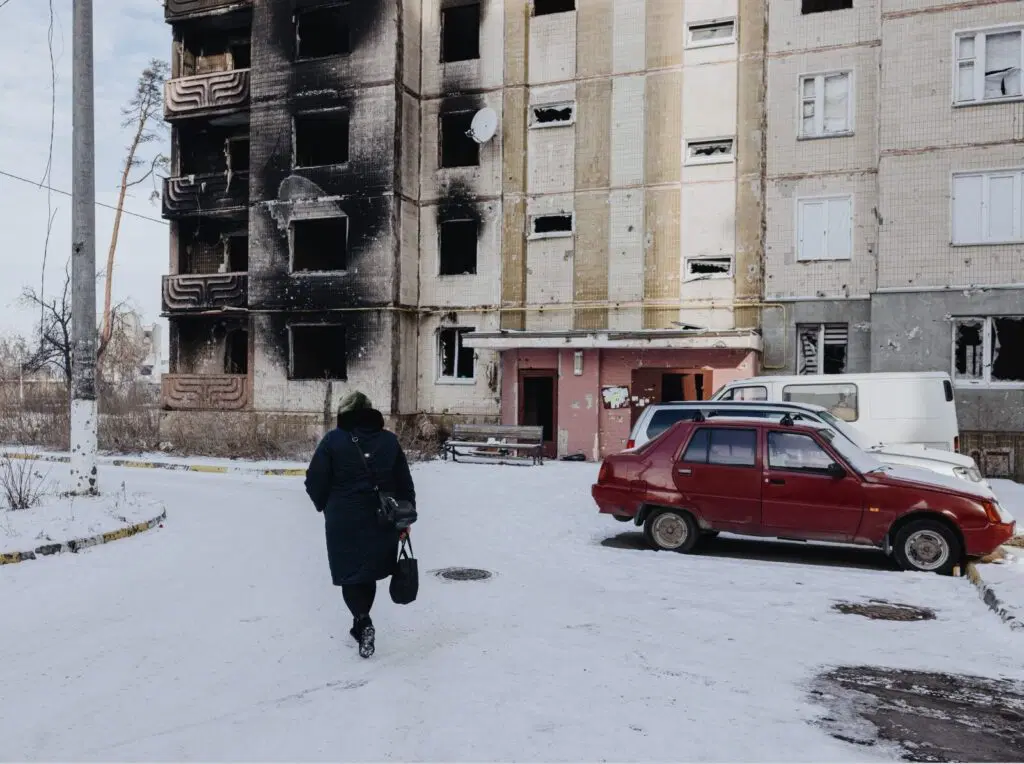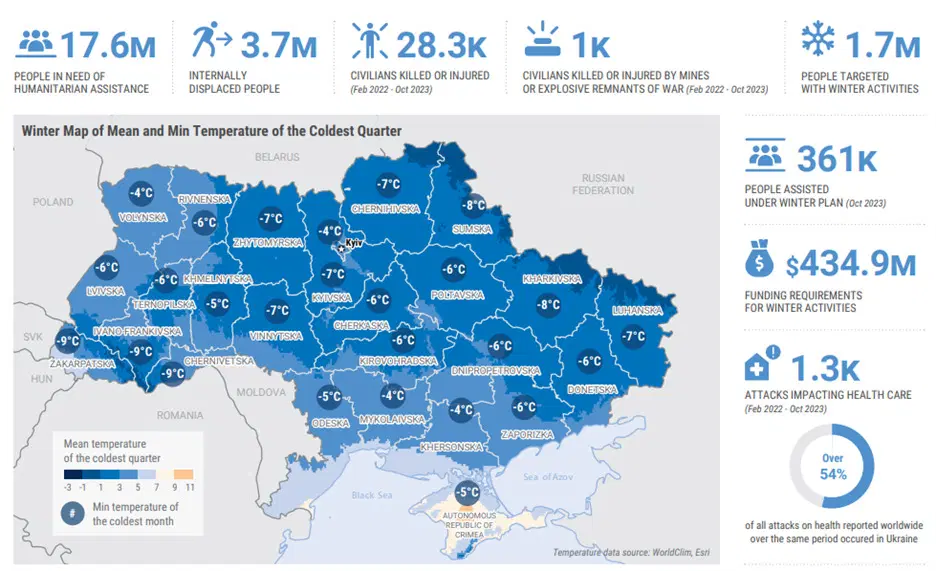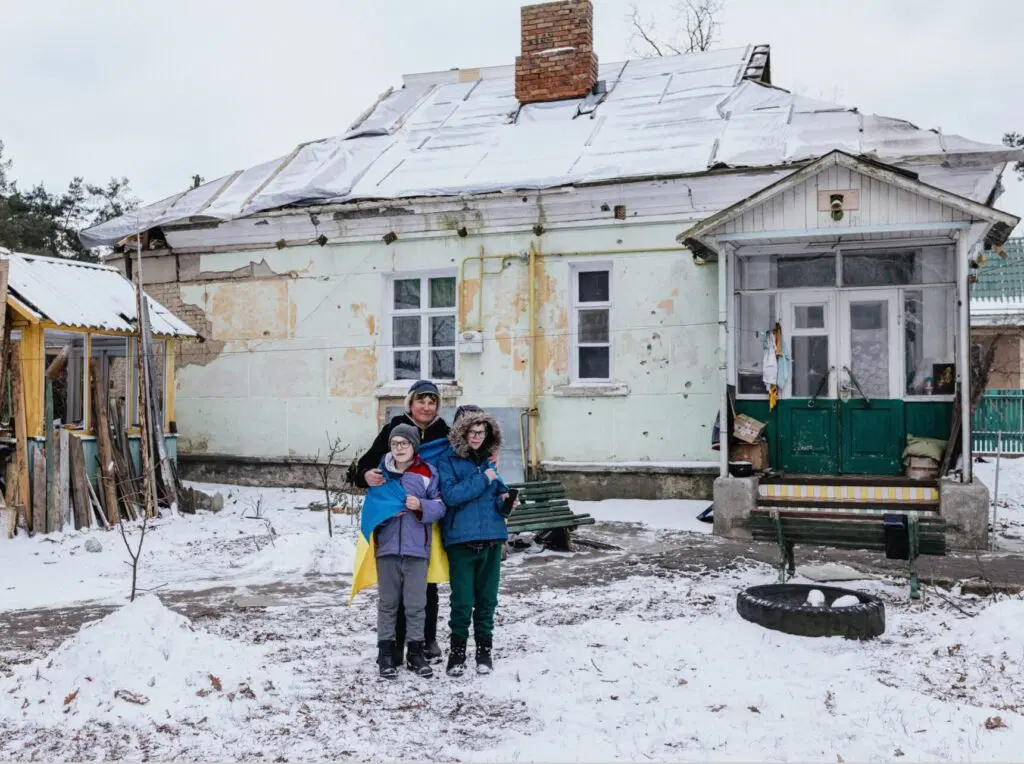It is now more than 630 days since the start of the conflict. While some glimpses of stability have temporarily emerged in certain areas of the country, the situation in Ukraine remains extremely difficult, especially in the south-eastern regions of the front line.
The latest indiscriminate attack which targeted the city of Kherson, in the south of the country, took place on 13 November. In the afternoon, a missile attack hit the centre of the city, destroying houses and a hospital.
Attacks against health facilities
This attack is just one in a long series that have relentlessly hit the southern regions of the country in recent weeks and is also the latest of more than 1,300 attacks conducted against health facilities across the country since the invasion began.
Only a few days earlier, 150 patients had been evacuated from one of the city’s hospitals due to the continuous bombing and the consequent difficulty in ensuring a continuous energy supply. To date, less than half of the hospitals have remained operational in the front areas.
In Odessa, the bombings intensified after the cessation of the Black Sea Initiative in July, hitting port facilities and grain reserves, but also civilian structures and ships, as occurred at the beginning of November. This has very serious consequences not only for the Ukrainian economy, but also for the millions of people around the world suffering from lack of food.
In the eastern regions of the country, bombings continue. In the city of Kharkiv, the second largest in the country, and in the region of the same name, many residential and administrative buildings – including schools and hospitals – have been damaged by frequent missile attacks.

And the situation is even more complex for the over half a million displaced people (including internally displaced persons, mainly from occupied areas or cities evacuated near the front, and refugees who have returned to Ukraine) who live in the region.
These areas are also densely mined, due to the very high number of explosive devices scattered during the fighting and to fortify the front line. Not only are entire agricultural areas now totally unusable, but the lives of people, particular children who are used to playing in potentially mined spaces, are in serious danger.
The psychological impacts
It is not only the physical impact of the bombing that is visible in Ukrainian cities and towns. The mental impact on the population is also evident. Entire communities have witnessed the destruction of their homes, suffered the loss of family and friends, and live with a chronic lack of essential goods and services.
Around 4,000 schools and kindergartens across the country, according to Human Rights Watch, have been damaged or destroyed, jeopardizing access to quality educational services for children.
Now, with the arrival of winter, the situation is destined to get even worse, as thousands of families will face the difficulty of heating their damaged and inadequately insulated homes and sheltering from the cold temperatures.
In the frontline regions as elsewhere, falling temperatures are bringing an increase in attacks on energy infrastructure. Already damaged electricity, water, and heating systems will therefore be placed under further stress, potentially leaving millions of people without electricity, gas, and water. Added to this is the difficulty (or in some cases impossibility) for many to find goods, such as winter clothes and accessories.

Support for children and families
WeWorld and ChildFund Deutschland, together with local partners, are working in the areas of Kyiv, Kherson, Mykolayiv, and Kharkiv, delivering humanitarian aid to the population affected by the conflict. Close to combat areas, our multi-sectoral interventions for the most vulnerable children and families include:
- psychosocial support for adults, boys and girls,
- education and awareness-raising on the risks from mines and unexploded ordnance,
- the rehabilitation of facilities such as water towers, toilets, water filtration systems, and center water systems in medical and rehabilitation centers, and
- financial assistance to the most vulnerable families.
As winter approaches, our humanitarian response is helping Ukrainian families prepare for the cold months ahead. This includes the distribution of wood and electric stoves, as well as winter kits including, jackets, sweaters, shoes, gloves, and blankets.
